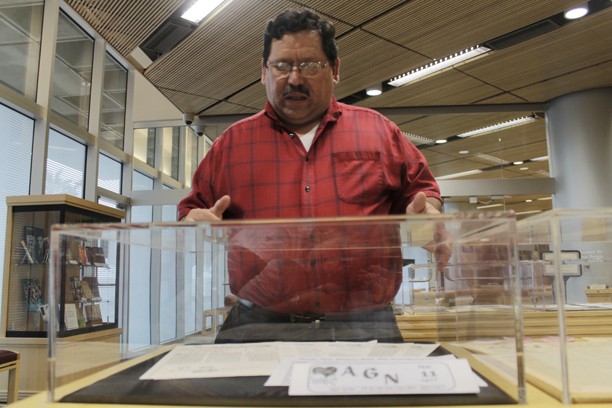The UA will highlight Tucson’s LGBTQ community in an installment of its “Civil Rights in Arizona” lecture series tonight at the UA Library Special Collections.
The lecture series, which features UA staff and scholars, is part of Special Collections’ “50 years: Civil Rights in Arizona from 1963 to Today” showcase celebrating the civil rights period from Martin Luther King Jr.’s “I Have a Dream” speech to the present.
The showcase runs through Aug. 30 and consists of lectures and exhibits about issues involving African-, Asian-, Native and Mexican-Americans on both the national and local scales over the last half-century.
Today’s lecture, which is free, will explore the impact of the LGBT civil rights movement on the Tucson community.
“In the ’60s, [in] small towns like Tucson, the community was totally underground, and probably very small,” said Bob Diaz, an associate librarian in the UA Main Library and coordinator of the series.
Diaz said he believes the LGBT community is “very well accepted” now, but added this hasn’t always been the case.
“A gay student back in ’63, they were completely closeted, most likely,” Diaz said, “and if their parents knew, they were probably in some kind of therapy.”
While LGBTQ issues existed in the ’60s and before, he said they were mostly unaddressed — the American Psychiatric Association didn’t even declassify homosexuality as a mental illness until 1973.
“People weren’t able to be out and proud like they are today, so it was a completely different kind of experience for students on campuses,” said Jennifer Hoefle-Olsen, the program director for LGBTQ Affairs.
Hoefle-Olsen’s office isn’t directly involved with the exhibit and panel discussion, but she said she is excited for Thursday’s event because while civil rights are taught in schools across the nation, the LGBT rights movement is often not included.
“There’s a rich history to learn, and just because people don’t know about it doesn’t mean that it doesn’t exist,” Hoefle-Olsen said.
The establishment of UA LGBTQ Affairs in 2007 was a sign of the LGBT rights movement’s increasing visibility.
Jess Cuadra, a pre-architecture freshman, said the UA campus is “a little more accepting than others,” but added that she still believed members of the LGBT community are treated unfairly and are “a little outcasted.”








